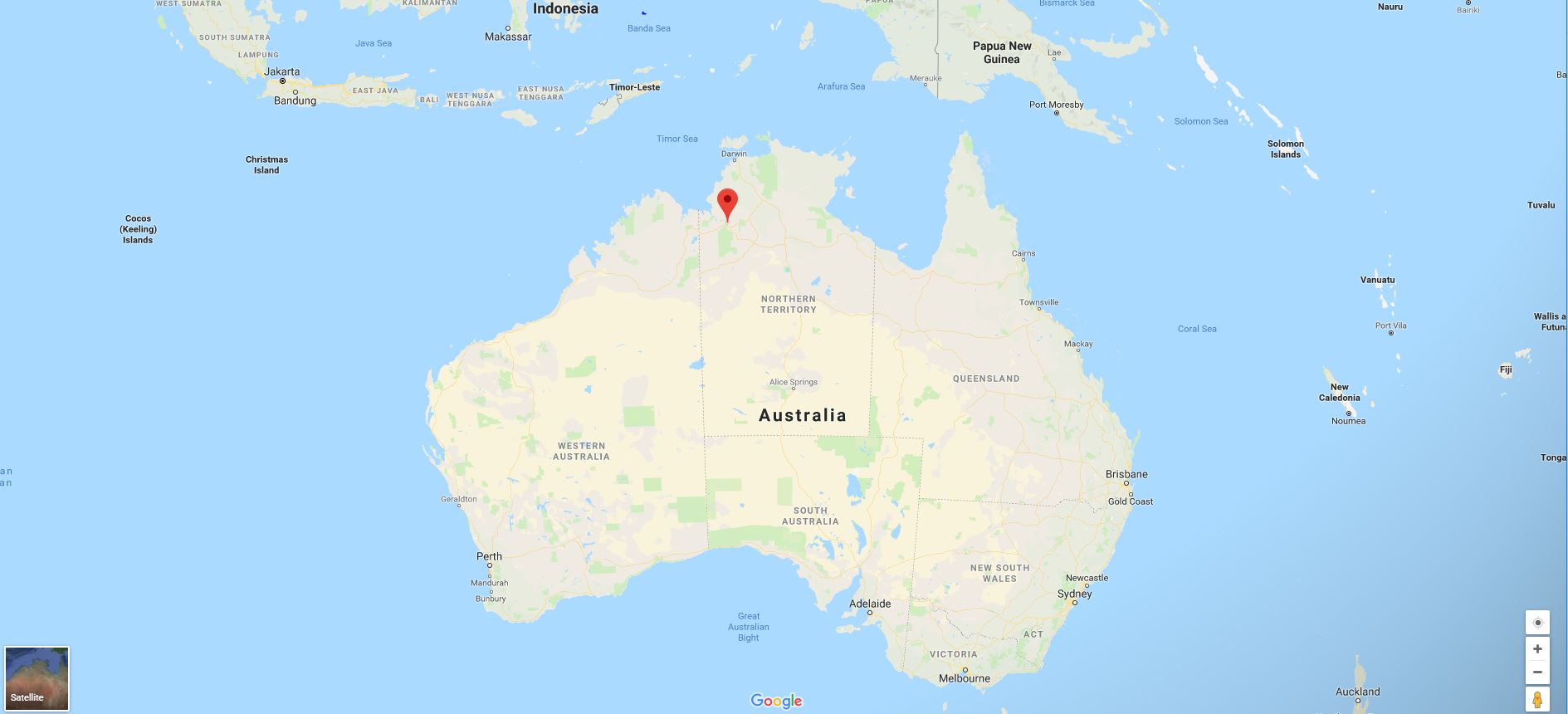
By IWGIA
May 2, 2019.- In a landmark decision on 13 March 2019, the Australian High Court ordered the Government of the Northern Territory to pay $2.53 million AUD (1.78 million USD) in compensation to the Ngaliwurru and Nungali peoples for the loss of Native Title in the town of Timber Creek.
The verdict is significant, as it is the first time that the issue of compensation for lost rights to Native Title has been considered in Australia by the High Court. It has set a precedent that will influence and spur future claims for compensation by groups of Aboriginal and Torres Strait Islander peoples across Australia.
Timber Creek is a remote community in the Northern Territory, some 600 kilometres south of Darwin. The town was first proclaimed in 1975. In 2006, the Ngaliwurru and Nungali peoples won Native Title to parts of their land in Timber Creek. However, at the time of the decision it was also found that these rights had been lost in other areas where government infrastructure had been built. Examples included a concrete bridge that had been built across a dingo dreaming site in Timber Creek, and a number of water tanks that were built across the same dreaming. In 2011 the Ngaliwurru and Nungali peoples sued the Northern Territory Government for the loss of these rights.

Decision acknowledges spiritual loss
The compensation for cultural and spiritual loss formed a significant part of the judgment. Considering this aspect of the claim, the Court noted that relationship of Aboriginal peoples to their land encompasses all of the country, and not just sacred sites. In this manner the relationship of the Ngaliwurru and Nungali peoples with their land could be seen as a spiritual and metaphysical one which was not capable of assessment on an individual small allotment basis. Thus any damage to a single part of their land, such as the bridge through the dingo dreaming, could be seen to affect the entirety. As stated by the court, they ‘punched holes in what could be likened to a single large painting.’
The Ngaliwurru and Nungali people will decide as a family group how they will use the compensation.

Implementation and recognition of indigenous peoples’ legal rights
The case was first addressed in 2016, where Griffiths v Northern Territory saw the first ever award of compensation for loss of Native Title by the Federal Court. In this decision, Justice John Mansfield awarded the Ngaliwurru and Nungali people $3.3 million AUD (2.2 million USD) for the loss. This was appealed, with the Full Court of the Federal Court reducing the award to $2.8 million AUD (1.98 million USD). The final appeal was made to the High Court by the Government of the Northern Territory and the Australian Federal Government.
The ruling has its genesis in the Mabo decision, and later Wik decision, which clarified that Australia’s common law acknowledges and protects the traditional land rights of Aboriginal and Torres Strait Islander peoples. Following these decisions, the legislative structure for the recognition, protection and compensation of Native Title was provided by the Native Title Act 1993 (Cth). Under the Act, a right of compensation is provided for the “impairment and extinguishment” of native title rights in a range of circumstances. Until now, however, there had been no clear guidance on what this meant in practice.
Read more about indigenous peoples’ rights in Australia in our newly published The Indigenous World 2019

Comentarios
Really when a high level
Really when a high level institution recongnize the great value of indigenous population, needs to be notorious in essence, by its diversity, ecological ecosystem and natural diversity. An indigenous population is a wisdom traditional human group and its champs of diversity must be preserver & care of any disruption over it. Both humans & diversity must be caring of depredation & extinction by a great unvaluable spectrum of value to the world. dra. bertha from peru
Añadir nuevo comentario